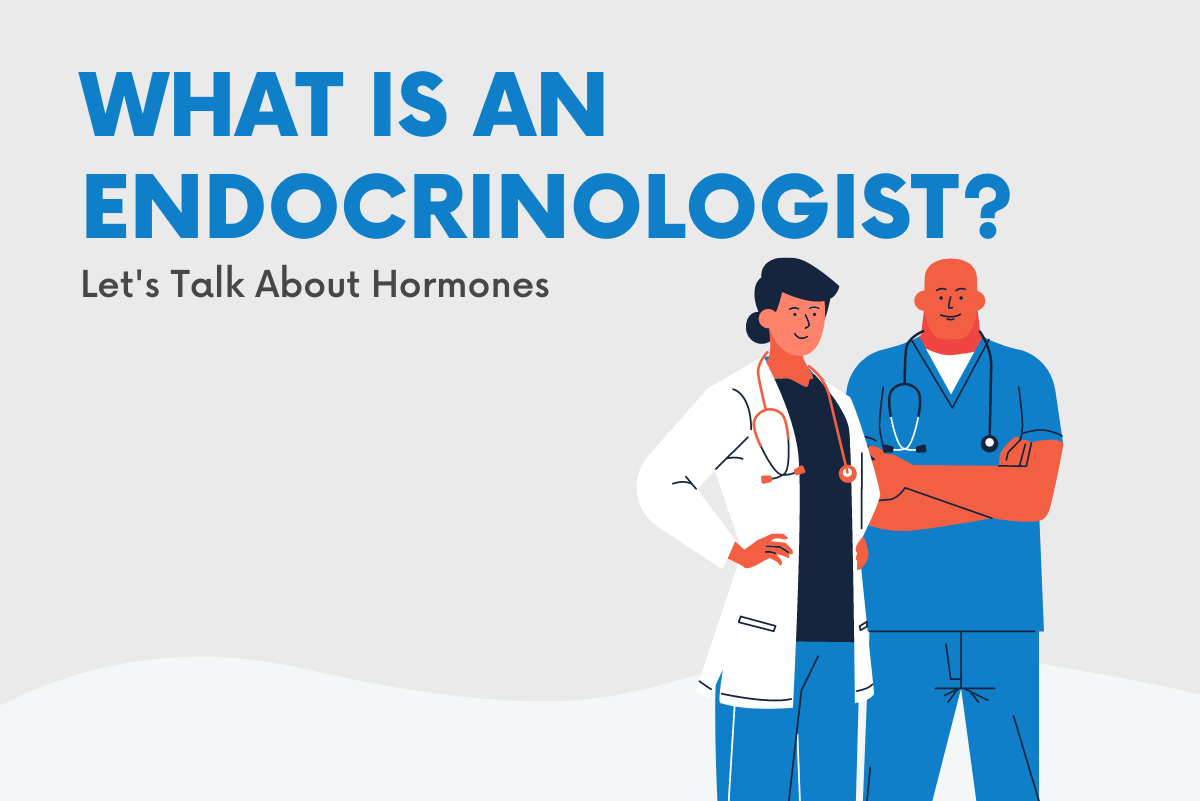What is an Endocrinologist?
March 22, 2021
By: Emerson Woodham
Categories: Blog Posts, Healthy Living
Let’s Talk About Hormones
Many vital functions of the human body – including reproduction, metabolism, growth, sleep, and movements – are regulated by hormones. Medical conditions, from diabetes to weak bones, are often a result of hormonal disorders.
Hormones are chemicals that help to coordinate and control the body’s functions. They are made and secreted by your endocrine glands, which include the pituitary, thyroid, adrenal, parathyroid, ovaries, testicles and pancreas. If hormone production gets too high, too low, or cannot be processed by the body in the right manner, it can lead to illnesses and medical conditions.
An endocrinologist is an internal medicine doctor who has completed training fellowship in endocrinology and specializes in the diagnosis and treatment of hormone-related disorders. They treat individuals with endocrine conditions such as:
- Diabetes and related complications
- Diseases of thyroid dysfunction: hyperthyroidism (too much hormone) and hypothyroidism (too little hormone)
- Thyroid nodules
- Thyroid cancer
- Diseases of the parathyroid
- Diseases of the adrenal gland, including: nodules, and hyper- and hypo-functioning states (Cushing's syndrome, adrenal insufficiency)
- Diseases of the pituitary: adenoma evaluation and management of states of hormonal excess or deficiency
- Osteoporosis and metabolic bone disease
What do these glands do?
A better question might be, what DON’T they do? Here is a quick look at a few of the key ways each organ affects your body. Many functions are governed by multiple hormones made by more than one gland.
- Adrenal gland – helps regulate metabolism, blood pressure, and how you respond to stress
- Pituitary gland – helps regulate growth, reproduction, metabolism and blood pressure
- Thyroid gland – produces hormones that regulate the body’s metabolic rate controlling heart function, muscle function, digestive function, brain development and bone maintenance
- Parathyroid gland – vital to heart, bone, kidney, digestive and muscle health because it regulates calcium levels in the blood
- Gonads – the primary male and female reproductive organs that secrete hormones
- Pancreas – controls secretion of insulin to regulate blood sugar levels
Do I Need to See an Endocrinologist?
Endocrinologists treat people who suffer from hormonal disorders. If your primary care physician suspects a hormonal disorder, they may refer you to see an endocrinologist or you may be referred if you’re having trouble optimizing your diabetes care. Endocrinologists often work hand-in-hand with primary care physicians to help patients effectively direct their conditions.
Endocrine Specialists of Athens
Endocrine Specialists of Athens is proud to partner with you and your medical care team to meet your Endocrinology and Diabetes care needs. They offer a full range of treatment options for those with diseases of the Endocrine system. Specialized physician, Dr. Jeremy Anthony, sees patients with a wide variety of conditions.
